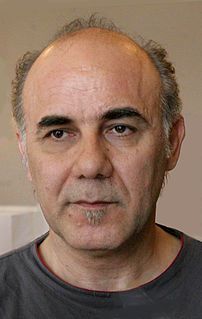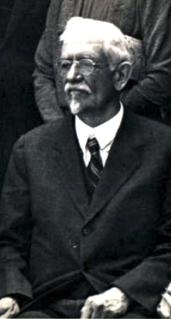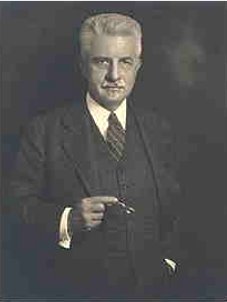A Quote by Javad Alizadeh
The 4D style, or cosmic comics and relativistic humor, is based on Einstein's theory of relativity which I came up with 20 years ago. 4D works use the idea of the fourth dimension, time, playing on such surrealistic and amazing subjects as motion relativity, space curvature and time dilation.
Related Quotes
Even in relativity theory even though you can analyze space - time in terms of this four-dimensional geometrical structure one of the dimensions is different. And this shows up in the equations. It has a different sign - rather than plus it shows up as a negative minus. So even in relativity theory time is distinct from space in terms of the way in which these dimensions manifest themselves in the equations.
We went to the moon using just Newton's laws of motion and gravity. Newtonian dynamics we call it. So then we find out, "Well, this works because there's certain regimes we've never tested it in." Had we done so, we would show that it didn't work: For example, at very high speeds, very high gravity, Newton's laws fail. They just fail. You need Einstein's laws of motion and gravity. Those would be his special theory of relativity and general theory of relativity. Now you invoke those and it works.
The supposed astronomical proofs of the theory [of relativity], as cited and claimed by Einstein, do not exist. He is a confusionist. The Einstein theory is a fallacy. The theory that ether does not exist, and that gravity is not a force but a property of space can only be described as a crazy vagary, a disgrace to our age.
I sometimes ask myself how it came about that I was the one to develop the theory of relativity. The reason, I think, is that a normal adult never stops to think about problems of space and time. These are things which he has thought about as a child. Bu t my intellectual development was retarded,as a result of which I began to wonder about space and time only when I had already grown up.
More philosophically-minded critics regarded Einstein's argument for relativity as little more than a logical bait-and-switch ploy: "[T]he supposition of most expounders of the Special Theory, that Einstein has proved the relativity of simultaneity in general - or that his 'simultaneity' is something more than a logical artefact - must manifestly be given up.
Relativity was a highly technical new theory that gave new meanings to familiar concepts and even to the nature of the theory itself. The general public looked upon relativity as indicative of the seemingly incomprehensible modern era, educated scientists despaired of ever understanding what Einstein had done, and political ideologues used the new theory to exploit public fears and anxieties-all of which opened a rift between science and the broader culture that continues to expand today.
I have read various articles on the fourth dimension, the relativity theory of Einstein, and other psychological speculation on the constitution of the universe; and after reading them I feel as Senator Brandegee felt after a celebrated dinner in Washington. "I feel," he said, "as if I had been wandering with Alice in Wonderland and had tea with the Mad Hatter."
Einstein had two new predictions from general relativity. One was that light would bend. That was tested in 1919, and basically, he was proven right. The second prediction was gravitational waves, which took us 100 years to prove. The theory itself, which is thought by most to be rather obscure, you use every day, probably.
Which is to say that culture is not a reflex of political economy, but
that society is now a reflex of key shifts in music theory and practice....
[Sampladelia is] the sound made by those early-twentieth-century discoveries
in particle physics and relativiity theory, the projection of the minds of
Einstein, Heisenbery, and Bohr, their fateful explorations of liquid time,
curving space, uncertainty fields and relativity theorems, into densely
configured and fully ambivalent android music tracks

































